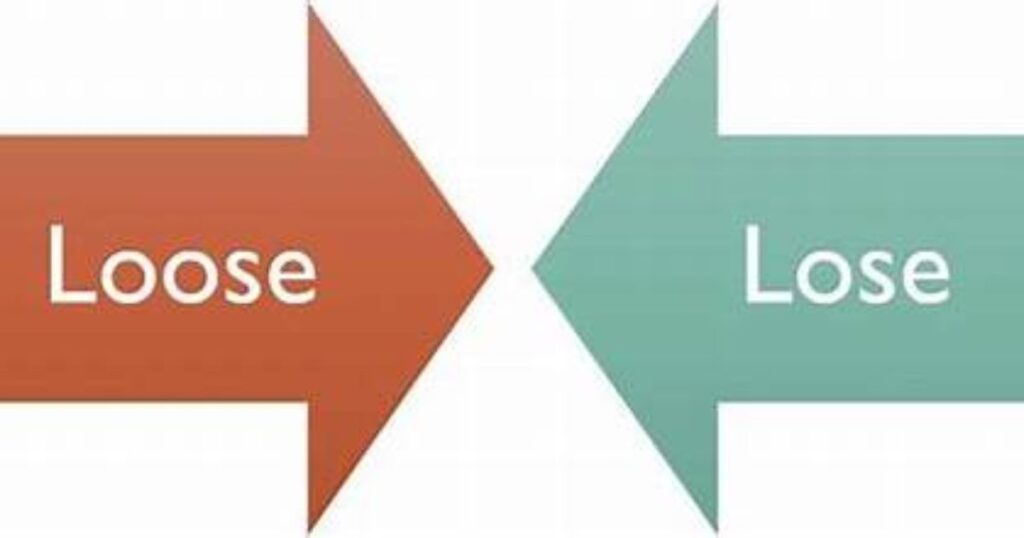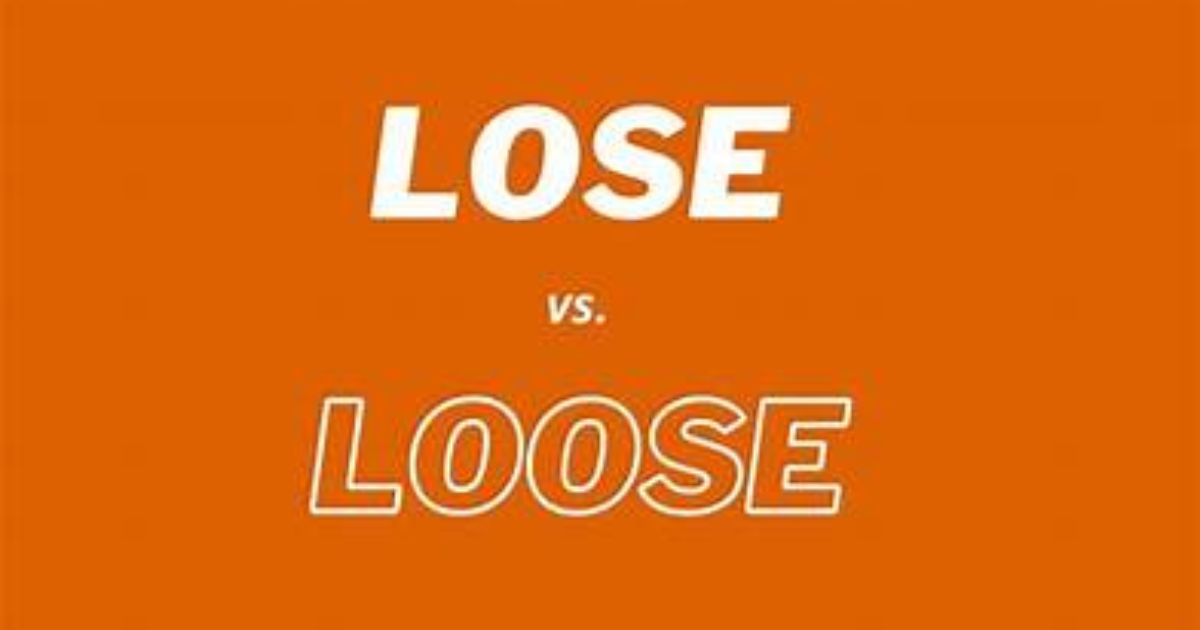In the English language, some words are so similar that people often mix them up. Loose and lose are two such words. These two terms sound alike, and their meanings can sometimes be confused. However, they are not interchangeable.
In this article, we’ll dive into the meaning of Loose vs Lose:, explore the differences between them, and provide plenty of examples to help you master when to use each. We will also take a look at some synonyms for loose and lose, the origins of loose and lose, and offer tips to avoid common mistakes. By the end, you’ll be able to confidently use these words in your daily speech and writing.
Why is There Confusion?
The confusion between Loose vs Lose: happens mainly because of their similar pronunciation and spelling. Even though these two words have distinct meanings, they are often misused in sentences, causing confusion. This is especially common with spoken English, where both words sound almost identical. It’s easy to see why so many people mix them up.
For example:
- “I don’t want to lose my keys.”
- “My keys are loose in my pocket.”
While both sentences may seem similar, they convey different ideas because of how we use the words. This is where understanding the difference between loose and lose becomes essential.
READ MORE: Oxymoron vs Juxtaposition: Unlocking the Differences
What Does the Word “Loose” Mean?
The word loose is primarily used as an adjective. It describes something that is not tightly held in place, or something that is not secure. You may have heard phrases like “a loose button” or “a loose screw,” which describe things that are not tightly fastened.
Loose Definition:
- Loose means not fixed in place, not tight, or free.
- It can also refer to something that is free or unconfined.
Example Sentences:
- The rope is too loose; it will not hold the box.
- The dog ran away because it was no longer on a loose leash.
What Does the Word “Lose” Mean?
In contrast, lose is a verb. It means to fail to keep something, to not be able to find something, or to be deprived of something.
Lose Definition:
- Lose means to be unable to find something, to misplace, or to suffer a loss.
Example Sentences:
- I don’t want to lose my wallet.
- She lost the game after making a mistake.
“Loose vs Lose:”: The Differences

While loose and lose sound the same, they serve very different purposes in a sentence. Let’s break it down further:
Part of Speech
| Word | Part of Speech | Definition |
| Loose | Adjective | Describes something that is not tightly fastened or secure. |
| Lose | Verb | Refers to the action of failing to keep something or misplacing it. |
Meaning and Usage
| Word | Meaning | Usage Example |
| Loose | Not tight, free, or unfastened. | The screws were too loose to hold the shelf. |
| Lose | To fail to keep something or to misplace it. | She was afraid she would lose her keys again. |
Synonyms For “Loose vs Lose:”
Understanding synonyms for loose and synonyms for lose can help clarify their meanings and usage. Let’s explore some common alternatives to these two words.
Synonyms for “Loose”
- Unfastened
- Unsecured
- Free
- Unbound
- Slack
- Loose-fitting
Example Sentences:
- The lid was unfastened, so the contents spilled out.
- He wore a loose-fitting shirt.
Synonyms for “Lose”
- Misplace
- Fail to keep
- Forfeit
- Be deprived of
- Drop
Example Sentences:
- I misplaced my car keys.
- He forfeited his chance to win when he made a mistake.
Examples in Context
Now, let’s take a look at some examples of loose and lose used in context. This will help clarify the correct usage of each word.
Examples of “Loose”
- The shirt was too loose, so I had to change it.
- The dog’s collar was loose, and it kept slipping off.
- I need to tighten the screws because they are too loose.
Examples of “Lose”
- I can’t afford to lose my job.
- I hope I don’t lose my phone in this crowded place.
- She lost the match by a small margin.
Origins of “Loose” and “Lose”
To understand the origins of loose and lose, we need to look at the history of the words and their roots in the English language.
Origins of “Loose”
The word loose comes from the Old English word “losian,” meaning “to set free” or “to loosen.” It’s related to the Old Norse word “lauss,” which also means “free” or “loose.” Over time, the word developed to describe things that were not firmly fastened.
Origins of “Lose”
On the other hand, lose comes from the Old English word “losian,” meaning “to suffer a loss.” It has Proto-Germanic roots and is connected to the word “los”, meaning “loss” or “destruction.” This word evolved to mean failing to keep something or misplacing it.
ALSO READ: The Past Tense of Meet: Picking the Right Verb
A Final Look at “Loose vs Lose”
By now, you should have a clear understanding of the difference between loose and lose. Let’s quickly summarize the key points. Loose is an adjective used to describe things that are not tightly fastened, secure, or confined. Lose is a verb used to describe the act of misplacing something or being deprived of it.
Key Takeaways:
- Use loose when describing something that is not tight or secure.
- Use lose when referring to the act of misplacing something or being deprived of it.
Sources
- Merriam-Webster Dictionary: Definitions of Loose and Lose
- Oxford English Dictionary: Etymology of Loose and Lose
- Grammarly: Common Grammar Mistakes with Loose and Lose

Osbert is a skilled linguist and educator specializing in English grammar and vocabulary. With years of experience, he has dedicated his career to helping learners enhance their language skills. Osbert is passionate about simplifying complex grammar concepts and is the founder of EnglishInfoz.com, a platform focused on English language education.
